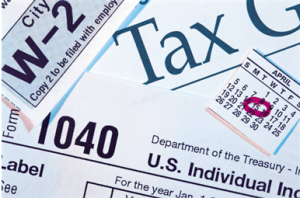What Policies and Procedures Lessons Can You Learn from the IRS?
Unfortunately (for some of us), it’s that time of the year again. All over the USA and even outside the country, individuals (like me) are filing their Federal and state tax returns at the last possible moment. I’m sure a number of companies are bound up in the rush to beat tonight’s deadline, too (my friends who are CPAs are overwhelmed with work right now). So what policies and procedures lessons from the IRS should you learn?
Not only is tax preparation exceedingly time consuming — it’s confusing and frustrating. You wish someone had all the answers, but even the “experts” don’t seem to.
Studies are conducted practically every year by governmental and private organizations that indicate the US Tax Code is virtually impossible to understand and enforce. The Internal Revenue Service (IRS) web site has thousands of policies, procedures, guidelines, and forms. These documents apply to individuals, businesses, non-profits, and/or governmental entities.
The opportunity for error in preparing a tax return — whether you rely on a professional tax preparer, tax preparation software, or your own wits — is enormous. The Government Accountability Office (GAO) has found over and over that those who are subject to the Tax Code, as well as those who are responsible for enforcing it, routinely make mistakes because they don’t understand the Code.
7 Policies and Procedures Lessons from the IRS
1. Review Your Policies and Procedures Regularly
The last major revision of the US Tax Code was in 1986; before that, it was 1954. 25 years (or more) is far too long between revisions.
2. Make Sure Your Policies and Procedures Are Clear and Concise
Don’t make them so large and cumbersome that even your own people don’t understand them. Reduce complexity and you reduce the opportunity for error.
3. Cover the Details but Don’t Obsess over Them
Trying to address every possible circumstance — sometimes known as “paralysis by analysis” — generally causes much more trouble than it solves.
4. Train Your Personnel
Train them carefully and thoroughly. Retrain them regularly, too.
5. Get a Variety of Inputs
Involve the people who are using the policies and procedures — those who are subject to the rules and regulations — in the design phase, long before you start implementing any code.
6. Be Sure Your Eyes and Ears Are Always Open
Be sure you don’t have a closed mind. Get feedback from the user in as many ways as you can. Encourage suggestions for improvement.
7. Keep Adequate Records at Every Stage
Be sure they’re organized, legible, and easily found when you need them and be sure to have a backup copy offsite.
Maybe you’re thinking, “I’ll never have to worry about that problem. I don’t plan on getting nearly that big.” Perhaps, but it’ll be easier if you plan well ahead of time and follow these policies and procedures lessons rather than happen into a difficult situation because you didn’t plan, will it not?
Do you notice any of the IRS’s problems — long and unwieldy documents, lack of feedback, etc. — creeping into your own business?
REFERENCES
- “10 Ways to Avoid a Tax Audit”, Wall St. Journal, 15 April 2011 (reproduced by Yahoo Finance) –
- “How to Survive an IRS Audit”, Motley Fool, undated –http://www.fool.com/personal-finance/taxes/how-to-survive-an-irs-audit.aspx















Leave a Reply